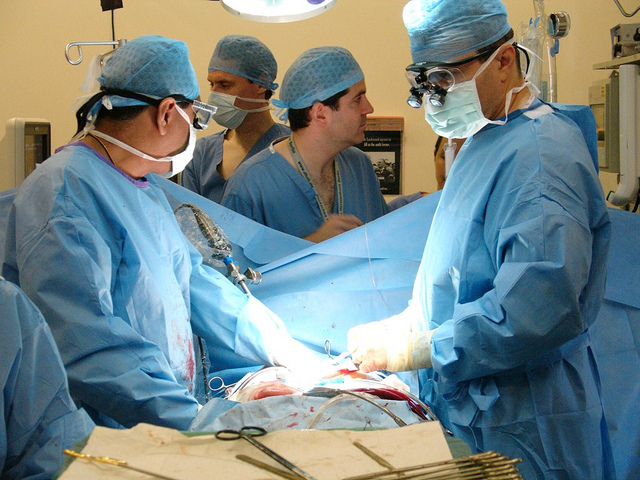Canada News
B.C. vows to reduce surgical wait times for hip and knee replacements

FILE (Photo: Andy G/ Flickr)
VANCOUVER — British Columbia will address long wait lists for hip and knee replacements, allowing an extra 4,000 people to have the surgeries in the coming year, the premier says.
John Horgan said a $75-million investment this year is expected to increase to as much as $100 million in 2018-19 with the opening of new programs focusing on system improvements, such as operating room efficiencies.
Health Minister Adrian Dix said advocates for improved care have long argued that lessons learned from a former hip and knee project in Richmond be applied more broadly.
“When it comes to surgeries, I think it’s fair to say people have been waiting too long to get back to their normal lives,” Dix said Wednesday.
Dr. Bassam Masri, head of orthopedics for Vancouver Coastal Health, said he’s seen wait lists of up to two years during his 23 years of performing the surgeries.
“The target is that we can get almost everybody done in 26 weeks to alleviate the pain and suffering,” he said of a benchmark set in 2005 by health ministers in all provinces.
Masri said primary-care doctors will send patients to specific clinics where physiotherapists and nurses will determine whether they should be referred to orthopedic surgeons.
“That way, you’re reducing the overall wait time,” he said.
The latest figures from the Canadian Institute for Health Information show British Columbia was third from the bottom of all provinces in 2016, with only 61 per cent of patients getting hip replacements within 26 weeks.
Nova Scotia was in last place, with 56 per cent of patients getting the surgery within that benchmark, followed by New Brunswick at 60 per cent. The best outcomes were in Ontario.
British Columbia fared second worst in Canada when it came to patients needing knee replacements, with 47 per cent having the surgery within the benchmark, while Nova Scotia was at the bottom, at 38 per cent.
Jenn D’Silva, manager of emerging issues at the institute, said the number of surgeries in B.C. and elsewhere has increased since the benchmarks were set, but wait times have also risen.
In 2012, 80 per cent of people were being treated for hip replacements within the benchmark in B.C., and in 2016 it was 61 per cent, she said.
However, D’Silva said wait times are measured starting when the decision for surgery is made, not when patients first see their family doctor.
The recommended maximum wait time for hip-fracture surgery is 48 hours, and B.C. meets that benchmark 86 per cent of the time, which is the average time across Canada, the institute says.
But there are regional differences in all the provinces. In British Columbia, patients on Vancouver Island have the longest wait times for hip and knee surgery, at 45 per cent receiving care within the recommended time frame, compared with 77 per cent of patients in the Vancouver Coastal area.
Dr. Brian Day, a longtime proponent of private clinics, has been fighting a battle in B.C. Supreme Court since September 2016, arguing patients have a constitutional right to pay for speedier surgery.
He said 26 weeks is an unacceptably long time for patients needing surgery, and provinces are being “dishonest” in not using actual wait times.
The Canadian Orthopaedic Association’s maximum time for joint replacement is three months, said Day, a former president of the Canadian Medical Association and Doctors of BC.
Day said he routinely operates on patients who injured themselves at work as part of their WorkSafeBC claims, as well as RCMP officers and prisoners.
“I’m pushing for the medicare system to become efficient,” he said. “There’s no monopoly that’s good for consumers. If there’s no competition then how can you compare your performance?”





















